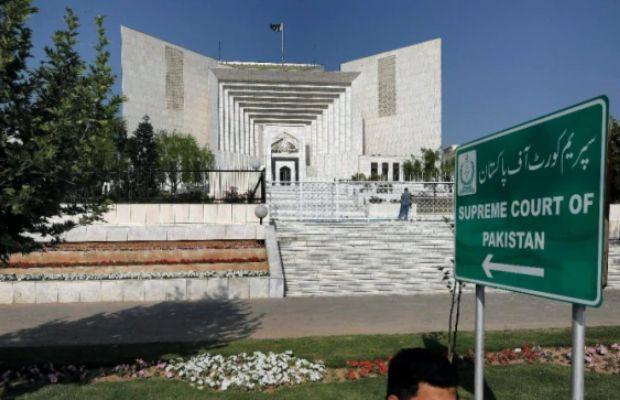Dissenting lawmakers’ votes will not be counted; SC verdict

Dissenting lawmakers’ votes will not be counted; the Supreme Court of Pakistan announced the decision on a presidential reference seeking interpretation of Article 63-A.
The Supreme Court on Tuesday wrapped up the hearing of the reference which was filed by President Dr. Arif Alvi on March 21.
The hearings continued for 58 days since its filing.
A five-member bench, headed by Chief Justice Umar Ata Bandial, comprising Justice Ijazul Ahsan, Justice Mazhar Alam Khan Miankhel, Justice Munib Akhtar, and Justice Jamal Khan Mandokhail, had completed proceedings of the case earlier today.
The verdict by the larger bench of the apex court was a 3-2 split decision.
Chief Justice of Pakistan Umar Ata Bandial, Justice Ijazul Ahsan, and Justice Munib Akhtar agreed that dissident members’ votes should not be counted.
While Justice Jamal Mandokhail and Justice Mazhar Alam Khan Miankhel disagreed with the verdict.
President Arif Alvi had asked four main questions from the apex court in the filed reference:
- Will “dishonest” MNAs be allowed to vote?
- Will the defecting members’ vote be counted, given equal weightage?
- Will the defectors be disqualified for life?
- Measures that can be taken to prevent defection, floor crossing, and vote-buying
The Verdict:
The short order issued by the apex court said that the first question referred by the president was related to the proper approach to be taken for the interpretation and application of Article 63-A.
“In our view, this provision cannot be read and applied in isolation and in a manner as though it is aloof from, or indifferent to, whatever else is provided in the Constitution. Nor can Article 63-A be understood and applied from the vantage point of the member who has earned opprobrium and faces legal censure as a defector by reason of his having acted or voted (or abstained from voting) in a manner contrary to what is required of him under clause (1) thereof,” the verdict stated,
It stated that Article 63-A was an “expression in the Constitution itself of certain aspects of the fundamental rights that inhere in political parties under clause (2) of Article 17,” adding that the two provisions were “intertwined”.
The verdict went on to say that defections were “one of the most pernicious ways” in which political parties could be destabilized, noting that they could also delegitimize parliamentary democracy.
“Defections rightly stand condemned as cancer afflicting the body politic. They cannot be countenanced,” the verdict said.





